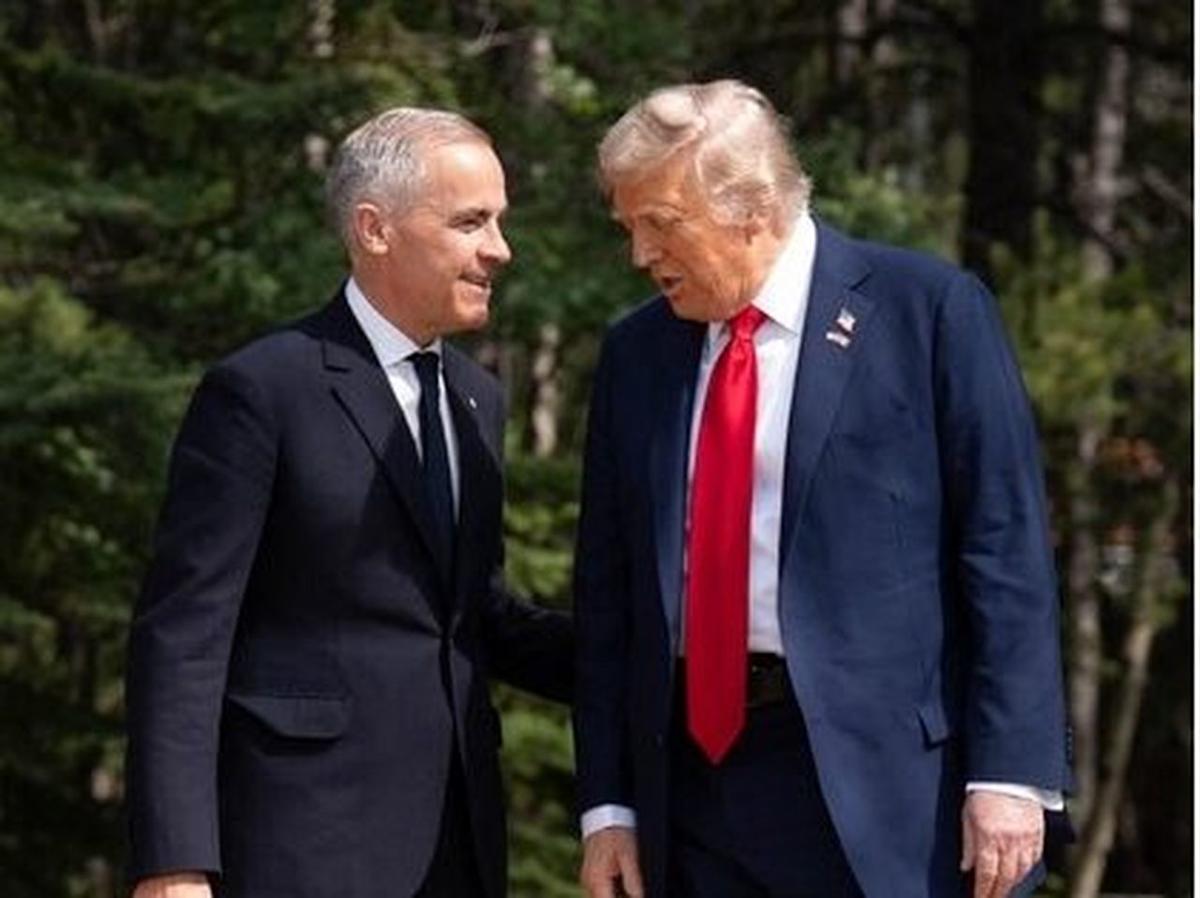The practical problem Prime Minister Mark Carney faces in negotiating a new trade and security deal with President Donald Trump is that Canada is firing blanks with its retaliatory tariffs against the U.S.
The issue, as Carney noted in explaining why “dollar-for-dollar” tariffs against the U.S. won’t work — after he initially supported them while running for the Liberal leadership — is that the U.S. economy is 10 times the size of Canada’s.
That means that Canadian counter tariffs on $95.4 billion worth of U.S. goods to date, along with the “buy Canadian” campaign urged by the federal government, are having little real-world impact on the U.S. economy.
Writing in The Hub last month, University of Calgary economics professor Trevor Tombe, said that in April — the latest data available — the total economic decline in the U.S. due to Canada’s retaliatory measures, “represents about $3.8 billion in missed Canadian purchases from U.S. firms.
“While that sounds substantial, the scale of the U.S. economy puts it into perspective: with a nominal GDP of nearly $30 trillion in U.S. dollars — or about $41 trillion in Canadian dollars — this loss amounts to just 0.1% of monthly economic activity” meaning, “these early signs suggest the impact on the U.S. economy is minimal.”
Regarding the voluntary consumer boycotts of American-made products, and buying Canadian ones instead, Tombe wrote:
“While individual choices may have shifted behaviour at the margins, the data reveal no consistent or large-scale changes in imports outside of tariffed goods.
“More data in the months ahead may tell us more. But for now, the conclusion is clear: while retaliatory tariffs had measurable effects on Canadian trade flows, and consumer boycotts — however well-intentioned — reflected genuine public anger with the U.S., neither has yet produced any meaningful economic impact south of the border”, which was the Carney government’s stated aim.
Similarly, Carleton University economics professor Vivek Dehejia told iPolitics in February that politicians urging Canadians to buy Canadian-made products over U.S. ones was “tokenism”.
“It’s a nice idea and it’s nice there’s been an uptick in patriotism and nationalism, but I don’t think it’s realistic.
“We simply can’t replace everything that we import from the U.S. because we’re a much smaller economy.
“I don’t think it’s going to cause much damage to the U.S. economy … it’s not going to fix our problem.”
That’s why Carney, criticized by former Liberal cabinet minister Lloyd Axworthy for taking a “bootlicking” approach to Trump’s demands — easy for him to say since he’s not on the hot seat — has already made numerous concessions to the U.S. president in order to avoid an all-out economic war which Canada would lose.
The latest was Carney scrapping Canada’s digital services tax last Sunday, after Trump threatened to end trade and security negotiations with Canada over the DST last Friday.
Carney has also delayed retaliation against Trump doubling tariffs on steel and aluminum imports to 50% last month, pending the outcome of the now-resumed negotiations for a trade and security deal between Canada and the U.S. by July 21.
In other measures to appease Trump:
Carney introduced the “Strong Borders Act” to “keep our borders secure, combat transnational organized crime, stop the flow of illegal fentanyl, and crack down on money laundering” in deference to Trump’s demands about border security.
He announced Canada would meet its long-neglected NATO target of spending 2% of annual GDP on defence by March 31, 2026, another Trump demand, and said Canada would also comply with Trump’s demand to increase spending on defence to 5% of GDP by 2035.
He suspended counter-tariffs on some U.S. goods for six months on the grounds Canadian industries needed time to adjust.
None of this is surprising given that Canada is the smaller economic partner in negotiations with the U.S.
It appears to have succeeded — at least temporarily — in avoiding the full range of tariffs that Trump could launch against Canada, which Carney hopes to avoid by reaching a deal with him by July 21.
This prior to the launch of negotiations on the Canada-U.S.-Mexico Agreement on trade scheduled for next year.
To be fair, Trump launched this trade war against Canada and many other countries, not the reverse, and he thinks nothing of violating existing trade agreements.
That said, Carney’s actions on this issue since becoming prime minister are fundamentally different from the “elbows up” rhetoric he campaigned on during the federal election.
RECOMMENDED VIDEO
